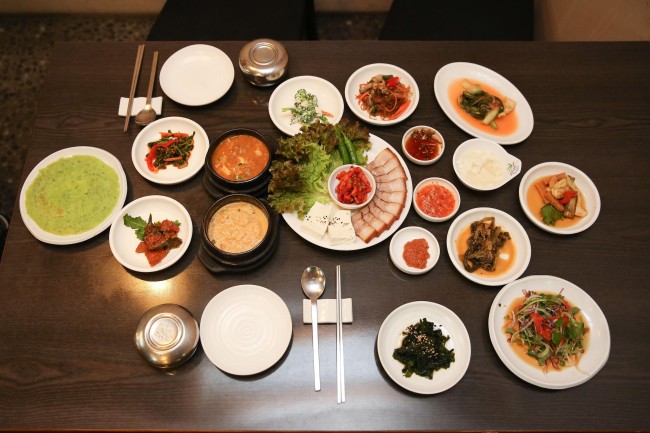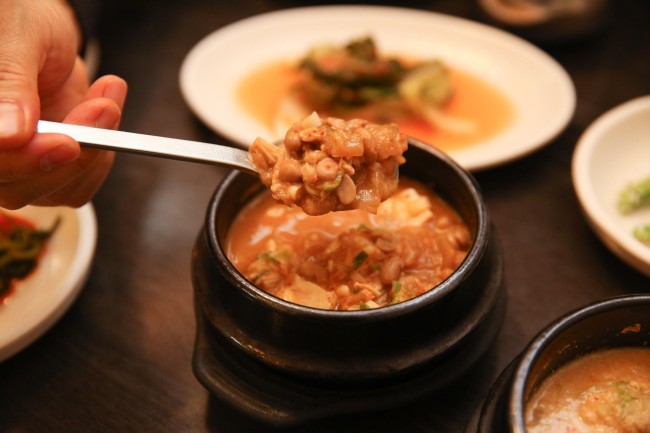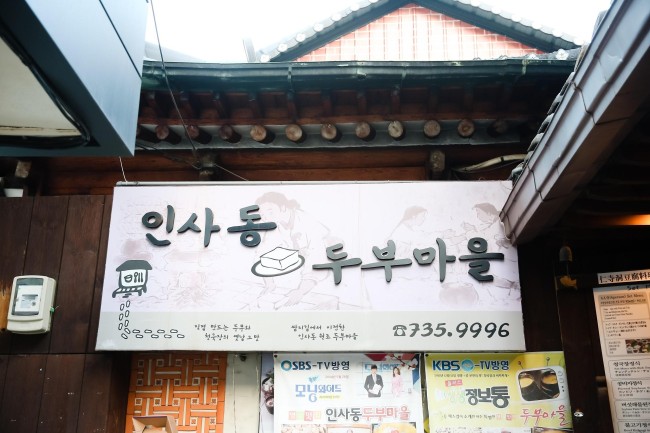[The Palate] Winter wellness found in fermented bean paste soup
Cheonggukjang, holistic fermented food with a distinctive taste, aroma
By Korea HeraldPublished : Feb. 19, 2016 - 20:01
Korean cuisine has long been associated with the practice of fermentation and the healthful benefits of a variety of pickled and salted foods. As health trends from around the globe are becoming more popular among conscientious eaters, the culinary history of Korea which is rich in flavor and focused on wellbeing, offers much to learn. One dish that stands out among Korea’s most pungent holistic foods is cheonggukjang, fermented soybean, with a unique aroma which makes it an acquired taste.
Going back a thousand years, cheonggukjang has an ancient culinary lore. Beans are known to have been first fermented in the seat of a horse’s saddle during an overland trip to China. The end result has become a popular food among commoners and royals alike since the Three Kingdoms era.
Going back a thousand years, cheonggukjang has an ancient culinary lore. Beans are known to have been first fermented in the seat of a horse’s saddle during an overland trip to China. The end result has become a popular food among commoners and royals alike since the Three Kingdoms era.

Often recognized as a seasonal winter dish, cheonggukjang is still made in the same style today -- covering the beans with the aid of rice straw or left in the open air as an agitator for the natural bacillus subtilis to grow. The fermentation process is completed in three to five days, creating a strong penetrating smell similar to that of ripe stinky cheese. However, this quick probiotic maturation and its highly beneficial health properties outweigh its offensive reputation, as it has been holding a cherished place among Korean health foods for centuries. Rich in protein, fiber, and enzymes, cheonggukjang aids the digestive and cardiovascular system, as well as providing a plethora of vitamins and nutrients.
In the folksy artist village of Insa-dong, Seoul, there are countless restaurants serving the health food dishes of Korea to tourists and locals alike. Insa-dong Tofu Restaurant, which specializes in many types of soybean dishes, has been making its cheonggukjang in-house for the past 12 years to a loyal following.

At Insa-dong Tofu Restaurant, located off the main street on a windy cobblestone path, just across from the famous temple foods restaurant Sanchon, you will find the head chef effortlessly fermenting cheonggukjang in a tempered cupboard shelf one or two times a week, depending on the demand.
The freshness of the restaurant’s beans can be appreciated in the very popular cheonggukjang tang, a soup, where one can taste the whole beans, and which are less salty and mildly aromatic compared to the store bought types. For first time tasters, it is recommended that they go to a specialty tofu restaurant, like Insa-dong Tofu Restaurant, rather than trying the soup in a run of the mill Korean eatery that serves doengjangjjigae or sundubujjigae stews.
Insa-dong Tofu restaurant puts much care into the making of its cheonggukjang and presents it beautifully with great pride. You can form your opinion about cheonggukjang after knowing you’ve tried a proper version of it. In the least, you can feel good that you have done your body some good.
By Christine Cho
(thepalate@gmail.com)
Christine Cho, a Korean-American expat in Seoul, has been eating and cooking her way around the world for 16 years as a private chef. -- Ed.
Insa-dong Tofu Restaurant
Address: Insadong 30-12, Jongno-gu Seoul
Telephone: 02-735-9996
Hours: 11 a.m.-9:30 p.m.
Price: 9,000 won - 65,000 won
Recommended dishes: Cheonggukjang 9,000 won
Pureed soybean biji stew 9,000 won
Set menu with bossam pork wrap 24,000 won

-
Articles by Korea Herald




















![[Today’s K-pop] BTS pop-up event to come to Seoul](http://res.heraldm.com/phpwas/restmb_idxmake.php?idx=642&simg=/content/image/2024/04/17/20240417050734_0.jpg&u=)